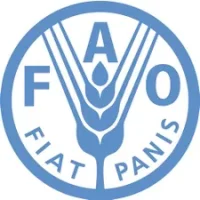
JOB DESCRIPTION
Organizational Setting
The Land and Water Division (NSL) aims to enhance agricultural productivity and sustainable use of land and water resources through their improved tenure, management, development and conservation. It addresses the challenges member countries face in ensuring productive and efficient use of land and water resources in order to meet present and future demands for agricultural products, while ensuring the long-term sustainability of the land and water quantity and quality. It promotes equitable access to these natural resources with a view to enhancing productivity, livelihoods and ecosystem services. It provides assistance to member nations in developing policies, programmes, best practices and tools in the fields of irrigation and drainage, soil conservation, drought mitigation, water rights, access to natural resources, and improvement of land markets.
Contracts will be based in FAO HQ (or other location) with required travel for field missions, where relevant.
Reporting Lines
Under the overall supervision of the Director NSL, Land and Water Division, Technical supervision of the Head of the Geospatial Unit, collaboration with IT Service Division (CSI). When activities are carried out in countries, the incumbent will be required to work in close collaboration with the FAO Representation in the relevant country of assignment, as well as the relevant FAO regional office.
Technical Focus
Geographic Information Systems/Remote Sensing.
Tasks and responsibilities
List of the tasks that the specialist will undertake include:
• Provide technical assistance in the use of GIS/RS in support of project teams and national and regional offices;
• Conduct technical assessment and identification of the most suitable satellite imagery, geospatial datasets and methodological approaches to support specific project’s needs;
• Provide technical assistance in developing solutions using geospatial and digital technologies for land and water monitoring in agriculture;
• Provide technical assistance in satellite image pre-processing, including mosaicking, stacking, atmospheric corrections, object-based-image-analysis (OBIA) for segmentation and classification;
• Provide technical assistance in monitoring land cover following international standards for legend preparation (LCML/ISO 19144-2), including classification, validation and accuracy assessments;
• Provide technical assistance in the development of innovative tools such as using cloud-computing platforms (e.g. GEE, SEPAL) and modules based on AI/ML/RS/GIS and big data;
• Contribute to national capacity development by preparing guidance on using geospatial information and remote sensing;
• Assist in the development and publication of geospatial datasets on land and water resources, agro-climatic resources, vegetation, crop production, emergency impact assessment, at various geographic levels;
• Contribute to the development of innovative technical digital agricultural solution to generate timely and efficiently geospatial data in support to agricultural monitoring;
• Support innovation in data collection through integrated approaches combining field and remote sensing, list and area frame sampling, for agricultural, land and water monitoring systems, including stratification, selection of sites for field data collection/validation;
• Support the collation, standardization, analysis and reporting of geospatial data and metadata from multiple sources in support to the FAO Hand-in-Hand initiative;
• Support the capacity development plans on geospatial technologies, including preparation of training and workshop material, preparation of information for meeting and conferences;
• Disseminate the geospatial data and metadata produced, in the various media formats (e.g. digital and paper atlas, map layouts, posters);
• Prepare technical and scientific reports, papers and guidelines describing the activities, results, conclusions and recommendations on the process and results;
• Perform any other tasks required.
CANDIDATES WILL BE ASSESSED AGAINST THE FOLLOWING
Minimum Requirements
• University degree in GIS, Geography, Environmental Sciences or related field;
• At least one year of experience for base level consultant or at least five years for middle level consultants in spatial data handling and analysis, satellite data processing and management, GIS and remote sensing applications;
• Working knowledge (level C) of English, French or Spanish, and limited knowledge (level B) of one of the other two or Arabic, Chinese or Russian (for Consultants). Working knowledge of English (for PSA.SBS).
FAO Core Competencies
• Results Focus
• Teamwork
• Communication
• Building Effective Relationships
• Knowledge Sharing and Continuous Improvement
Selection Criteria
• Work experience in programming languages such as R and Python for GIS/RS;
• Work experience in international organizations and in projects supporting developing countries
• Work experience on satellite image analysis, geospatial data and metadata management and processing
• Work experience on cloud-computing platforms (e.g. SEPAL, Google Earth Engine)
• Work experience on batch-scripting for data processing, geo-statistical packages for automatic classifications
• Work experience on capacity development and knowledge transfer on GIS/RS
• Familiarity with the tools of FAO’s Land Cover Classification System (LCCS) standard
• Capacity to report results to different audiences.
